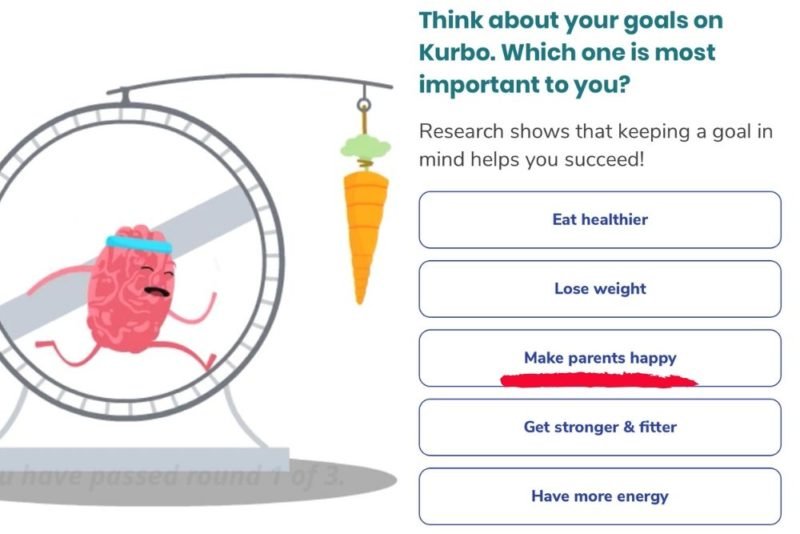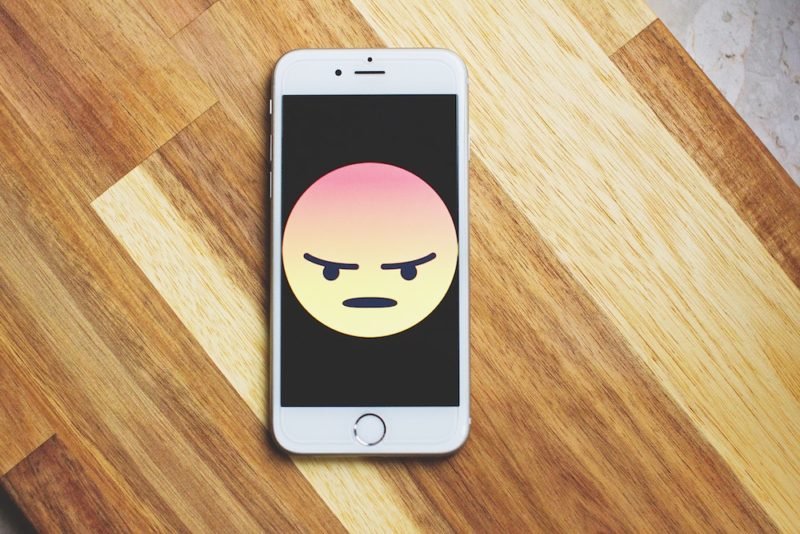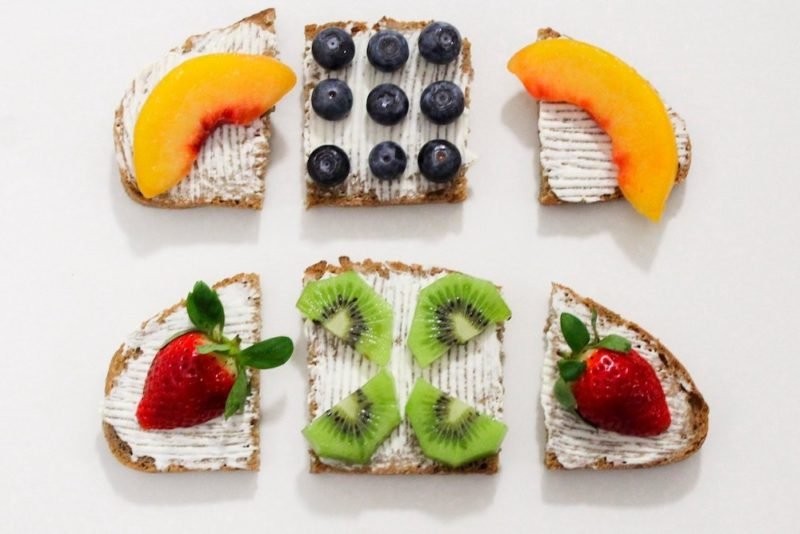
In case you haven’t read it yet, I wrote about WW’s—the company formerly known as Weight Watchers—weight loss app for kids, Kurbo, in this week’s issue of The Seattle Times. Here’s some backstory, as well as some outtakes—aka quotes from my experts that I had to leave on the “cutting room floor.”
So let me set the scene. I was happily camping on the Washington coast the morning I got the email on my phone (barely…horrible cell reception): “Announcing Kurbo by WW and Invitation to a Briefing.”
I opened the email, and saw that Kurbo was a weight loss app targeting kids. “Oh..the hell…no,” I thought. I read through the email, written in pure marketing-ese, and:
- Winced at “today marks an evolution for WW International.”
- Grimaced at “we have decades of experience in scaling science-based behavior change programs” (thinking of the sad half-sandwich and carrot sticks that was my lunch when I was on Weight Watchers as a teen, and of my many patients who had poorer relationships with food and body thanks to Weight Watchers).
- Started yelling at my phone at “a science-based proven program,” because I know what the science says, and that’s not it.

Vacation, interrupted
I was barely able to follow the resulting blow-up on social media (again, horrible cell connection), including a Twitter takeover and posts by dietitians, therapists, doctors and other who could clearly see Kurbo for what it was, but mine wasn’t the only vacation interrupted by WW’s announcement.
Christy Harrison, host of the Food Psych podcast, was in the middle of a much needed vacation after finishing edits on her forthcoming book, “Anti-Diet,” when she was asked to write about the Kurbo app for The New York Times. (Of course, as she put it when we were chatting for an article on intuitive eating that I just turned in to The Washington Post, WW’s intrusion on her time off was nothing compared to how Kurbo had the potential to interfere with kids ability just to be kids and not get sucked into disordered eating. (Also, see Christy’s follow up piece for NYT, addressing some of the many comments that her first article received.)
I went straight from camping to a farm tour in California, where I spent hours “playing” with the Kurbo app and feeling steam come out of my ears. I was with seven other dietitians, so you bet Kurbo was a topic of conversation. While we didn’t agree 100 percent on how bad Kurbo is (or whether there was any merit to it), there were definitely some universal points of agreement, mostly distinct unease about the adult-style before and after pictures of young kids, and disbelief that “make parents happy” was even an OPTION as a weight-loss related goal.
What I know about actual weight science
My thoughts about Kurbo don’t come out of left field. Not only have I helped many, many clients recover from disordered eating patterns and an unhealthy relationship with food that started when they were put on diets as children, but I’ve been directly involved in research on weight loss interventions for pediatric obesity.
You already know this if you’ve listened to my recent guest appearance on the Food Psych podcast, but one of my major motivators for going back to graduate school to study nutrition and become a registered dietitian was to help people lose weight. I had recently come off of my latest (and last) “successful” diet, and I thought I had it all figured out, that I was in control of my body and could help others be similarly successful.
Of course (as I talk about in the interview), this notion all started to unravel during grad school, as I realized that not only was the massive effort needed to maintain weight loss not compatible with a having a balanced, joyful life, but it wasn’t necessary to be healthy. I still exercised almost every day, and still prepared nutritious and tasty meals, but my efforts shifted to a level that felt sustainable, to one that promoted health and well being but not necessarily a suppressed body weight. As I learned more about intuitive eating and Health At Every Size, and the research behind those ideas, I moved further away from a “weight-centric” approach to health.

Inside a child weight loss intervention
Of course, this was gradual, and at the time I had to start looking for a research project for my master’s thesis, I was still looking for something related to obesity. I ended up doing a secondary data analysis of research from a pediatric obesity study (that means the main research was already done, but I formed a hypothesis based on one of the focal points of the research, and then looked at the data to see if my hypothesis was correct, or not).
This particular research project enrolled parent-child pairs in which the child, and at least one parent (not necessarily the parent who enrolled with them) was considered overweight by a certain degree. The kids came to individual sessions with their parent and a therapist. There were three main parts of the research:
- The kids were taught the “traffic light diet.”
- They were encouraged to be more active and/or reduce sedentary activities.
- Their parents were instructed to only praise their kids for positive food and activity behaviors, NOT for weight loss.
For my project, I had to listen to and code hundreds of hours of recordings of these parent-child-therapist sessions. By “code,” I mean I had to note whether in the sessions the parents made any comments (praising, neutral or critical) about their child’s food behaviors, activity behaviors or their weight. I heard very few weight-related comments of any sort (thank goodness), but, again, the parents were instructed not to talk about weight, even to praise, because of how harmful that can be.
A real risk of harm
The lead researcher (a psychologist) was a great guy, and he really cares about kids. So I was surprised in one of our meetings when he said some of his psychologist friends didn’t even want to talk to him about his research. Now, at that point I was not fully on board with the idea that intentionally pursuing weight loss might be a problem, especially in kids. Later, when I was, his comment made sense: even though they took every precaution to prevent harm, there was still the chance of harm, something that psychologists, therapists, and many dietitians are all too aware of because we see the fallout.
Imagine then, the risk of harm when a parent signs up their kid for a free app that demonizes certain foods and glorifies weight loss for appearance reasons, not solely for “health” reasons as WW claims (I’m sorry, but a child should not feel that she has to alter her body so she can buy “cute clothes”…the lack fo cute clothes is a failing of clothing retailers, not individual bodies). Also imagine that if the parent wants to pay extra for their child to work virtually with a “health coach,” that coach is a 20-something with a degree in something not remotely health-related (business administration, anyone?) but is a “certified health coach,” a designation that does not qualify people to work with vulnerable kids who may have body image issues and may be participating in Kurbo just to make their parents happy.

Outtakes from my Seattle Times article
When I’m writing an article and get fabulous quotes and have to leave some of them out because I only have a strict word limit, it pains me. So here are these precious bits of wisdom that didn’t make it into my article:
Haley Goodrich, Pittsburg-based registered dietitian and owner of INSPIRD Nutrition:
Kurbo and WW are about money. And fatphobia. Not about kids ‘health’. Want to teach kids about health? Teach them to trust their body, and let them know you trust their body. Teach them about weight stigma and how it harms. Teach them to be fierce lovers of all body sizes and shapes. Teach them about non-appearance based values. Teach them that honoring their hunger is honoring their body. Teach them all foods are good foods. Teach them that their body will grow and gain weight.
Unless we are seeking to understand the complexity and the role that poverty, systemic oppression, discrimination, access to respectful and adequate health care, and a whole host of other factors play in determining health, simply recommending weight loss is harmful and ineffective.
Rebecca Scritchfield, Washington DC-based registered dietitian, author of “Body Kindness,” and host of the Body Kindness podcast:
I think our generation is failing our kids unless we speak up firmly and advocate for kids’ health at every size. It’s not just about resisting this app because sadly there will be other ways diet culture harms children. We need to think about the kind of world we want to create starting with eradicating fatphobia. Kids should get the message ‘my body is not the problem‘ even when concerns are raised about health. Parents deserve a society that supports them in caring for kids’ well-being through access to safe and healthy food, places to play and exercise, and unconditional love from family, friends, healthcare providers, and their school. When we stop blaming individuals, we also stop upholding weight loss products as solutions.
Disclaimer: All information provided here is of a general nature and is furnished only for educational purposes. This information is not to be taken as medical or other health advice pertaining to an individual’s specific health or medical condition. You agree that the use of this information is at your own risk.
Hi, I’m Carrie Dennett, MPH, RDN, a weight-inclusive registered dietitian, nutrition therapist and body image counselor. I offer compassionate, individualized care for adults of all ages, shapes, sizes and genders who want to break free from eating disorders, disordered eating or chronic dieting. If you need to learn how to manage IBS symptoms with food, or improve your nutrition and lifestyle habits to help manage a current health concern or simply support your overall health and well-being, I help people with that, too.
Need 1-on-1 help for your nutrition, eating, or body image concerns? Schedule a free 20-minute Discovery Call to talk about how I can help you and explore if we’re a good fit! I’m in-network with Regence BCBS, FirstChoice Health and Providence Health Plan, and can bill Blue Cross and/or Blue Shield insurances in many states. If I don’t take your insurance, I can help you seek reimbursement on your own. To learn more, explore my insurance and services areas page.
 Print This Post
Print This Post






